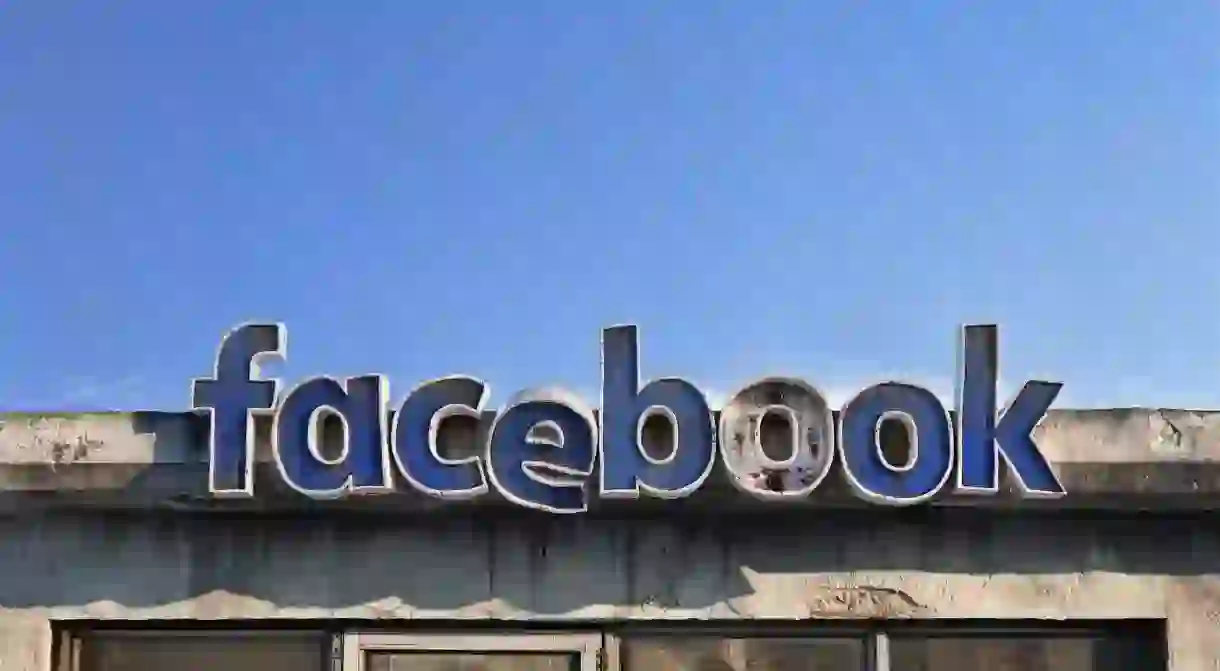Andrei Lăcătuşu's Social Decay Series Questions the Status Quo

One look at today’s online giants and the way they shaped how we see the world and interact with one another is enough to make us think they’re here to stay. But evolution is inherent. With an eye on change, Bucharest-based CGI artist Andrei Lăcătuşu is challenging our perception by pushing us to look beyond the status quo. We caught up with the artist in his hometown in Romania to hear more about the thoughts behind his ‘Social decay’ series.
What message did you want to convey by imagining the iconic logos of today’s online giants as derelict and abandoned?
I started this project with the intention to illustrate some kind of a metaphor. Not to predict the future or wish for the failure of these companies, not at all, but rather by connecting the images and the title to portray the state of the traditional, of the natural, human way of socializing, which under the overwhelming influence of social media, is in a continuous state of decadence.

What social media do you use yourself?
I have to admit that I’ve tried them all, but I can say that I consistently use only Facebook and Instagram. And lately pretty much just Instagram, as Facebook kind of lost its magic for me.
Which of them, do you think, changed life as we know it?
All of them play their part, but the main life changers are of course the two big giants, Facebook and Google. Google is not actually a social media app, even though they tried something at some point, but they are some sort of pioneers with large scale implication in human lives, and they are the nexus of a lot of the things that happen now on the internet. They changed life so much, and just if we mention one feature, for example Google Maps, we realize their daily influence. And Facebook, are of course, the champions of social media. They changed our lives by deforming some of humanity’s most basic and organic activities, that were consolidated over the entire evolution of mankind – in a very short time frame. Facebook changed the way we meet people, the way we keep in touch with friends, the way we gain social approval, the way we do business, how we market our goods and services, the way we perceive privacy, how we do politics and so on.

What was the inspiration behind the derelict looking signs? Many see Las Vegas, but to the Eastern European onlooker they might recall glimpses of derelict store fronts that populated the streets after the fall of communism.
Actually yes, I was inspired by the industrial and commercial signage that was left over after the fall of communism. More than that, I developed the idea for the project while researching on this type of signage in Romania. Later on, for the sake of diversity, I also shifted to the old American signage design, especially in the Tinder visual.

Decay cannot be seen as positive, but an optimist can put a spin on that. Could they be a hint that something better might be behind the corner?
I think if we spin around the concept of creative destruction, we can find that something good always comes from something bad. Even after a war, or an epidemy, or any other tragedy, one can identify good effects and can be seen as hiccups on the road to progress. So yes, in theory, we can see the bright side in the fact that society changed, and that the old way of living in a society is on the verge of disappearance in the developed world. And also, if these companies ever meet their end, this will probably happen because some better products brought them to extinction. Just like Google substituted Yahoo, or Facebook collapsed hi5 or MySpace.

How would you imagine communication in a post-Facebook and post-Twitter world, dating in the post Tinder days and our view of the world after a Google collapse?
It is hard to believe these sort of services could disappear. Only in the case of a apocalyptic event, perhaps. But otherwise, these services will just be substituted by something new. Nowadays, our smartphone is the center of our social life. It is enough for a new technological advance to replace this device, and make the experience more entertaining, interactive, and then we will have some other apps, So maybe the future will take us even deeper into the virtual world, with even less real physical interaction.













